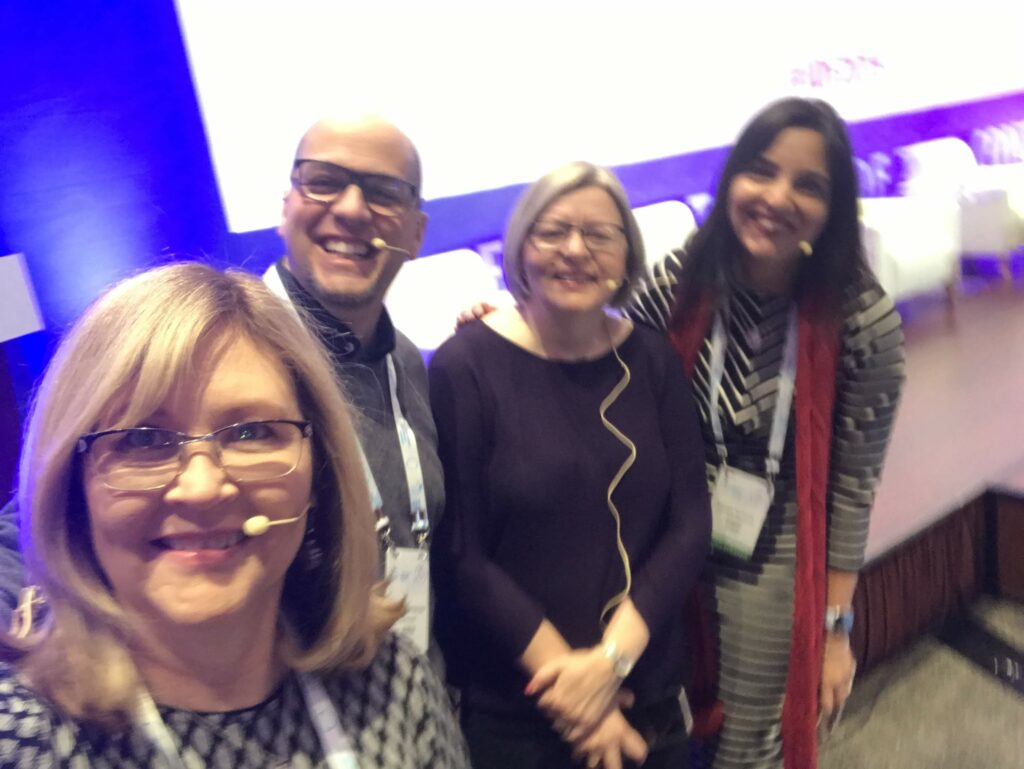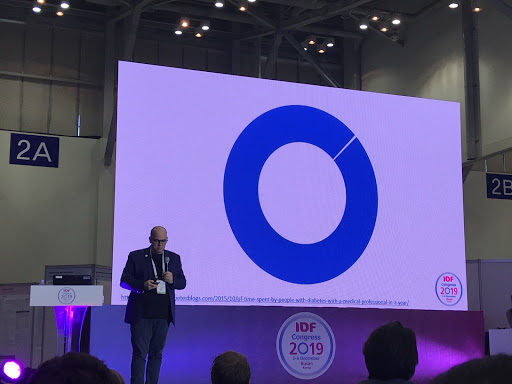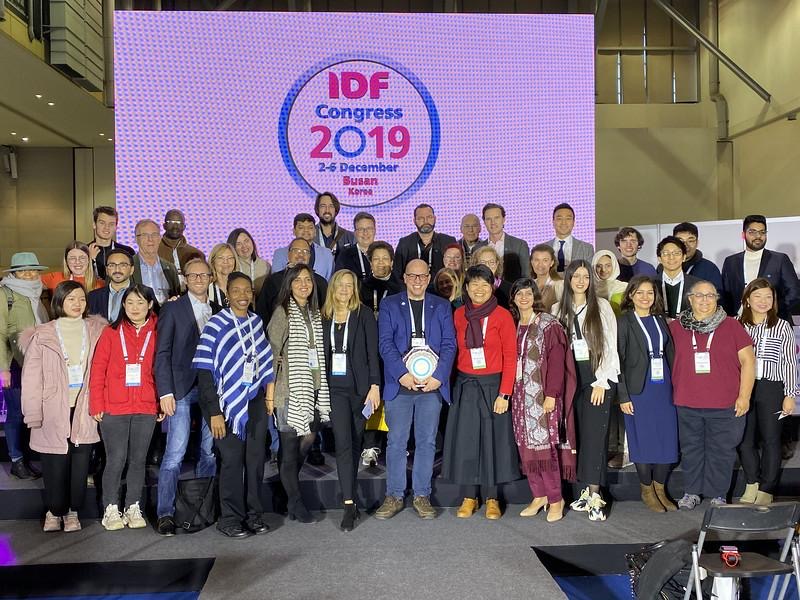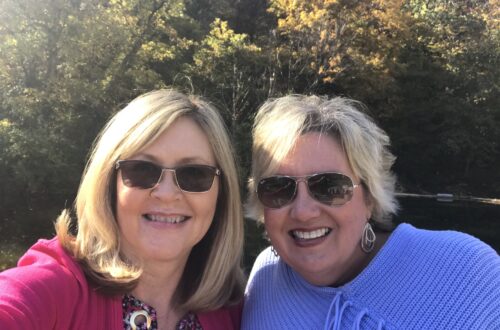
“A mind that is stretched by a new experience can never go back to its old dimensions.” – Oliver Wendell Holmes
Hi, this is Deb writing today. I just recently returned from the International Diabetes Federation Congress, in Busan, Korea. A few of our readers made it to this conference, along with many more friends from the diabetes community who presented interesting sessions that we @AFreshPOVforYou thought you might appreciate.
Living with Diabetes Stream
My main reason for attending was to present on a panel discussing #LanguageMatters as part of the Living with Diabetes Stream, a series of sessions that focus on life with diabetes where many people living with diabetes discuss their strengths and challenges and share real world experiences. It was a great opportunity to share lessons learned over the past several years about how empowering, person-first, strengths-based language can not only improve healthcare communication, but also health outcomes. I co-chaired the panel with Renza Scibilia, from Australia, one of the early adopters the #LanguageMatters movement. There were three speakers, each with a slightly different focus.
First, Shinomi Takahashi, a nurse and PhD candidate from Japan, presented on the meaning of the word “diabetes” in different languages. It was fascinating to learn that in Japanese, diabetes, tou-nyou-byou (糖尿病) means “sugar-urine disease”, and many people feel this adds to the stigma of living with diabetes. There was a movement in Japan to change the names of type 1 and type 2 diabetes to describe the physiological differences of the conditions, similar to U.S. discussions. However, as several mentioned in the session – the differentiation between types actually leads to more stigma associated with type 2 diabetes.
Next, I spoke on the Value of Language Guidelines. The key takeaway was that the use of guidelines helps to change the practice of healthcare. When educating healthcare professionals (HCPs) about the impact of language on engagement in care AND health outcomes, HCPs start to listen. If only all medical, nursing, dietetics and other health profession education programs began each year with a review of the use of strengths-based, person-first language, we’d all be in a better place. The more I learn, write, and speak about incorporating a solution-focused approach into diabetes care and education, the more I realize that this approach makes the use of strengths-based language so easy and natural. So, if we can help HCPs incorporate this approach into practice, we can help change the language at the same time! As always, I ended my presentation with the film co-designed by people living with diabetes and HCPs, “Changing the Conversation”, that continues to resonate with audiences who engage with people with diabetes. (I think it was shown at least three times during the conference!)

The final speaker, Elizabeth Snouffer, Editor for DiabetesVoice.org, presented information around the messaging and advertising that has wrongly portrayed diabetes in the eyes of the public. She shared how creating a culture of fear, victim blaming, and stereotyping does nothing but fuel the myths and misconceptions. What was really fascinating was the focus on how advocacy organizations and other consumer focused groups actually contribute to the stigmatizing language. Some of the images she shared were unbelievable (You can see some of those here on Twitter). She concluded with examples of successful campaigns that have made a difference in changing the conversation around diabetes.
Digital Health
I also sat on a digital health panel, Technology; The future is now, with a line-up of amazing individuals representing the spectrum of the digital health:
- Kyle J. Rose (Healthcare Enthusiast and Innovator), a newly elected Vice President for IDF Global, and previously with mySugr, chaired the panel
- I represented the perspective of the HCP, diabetes care and education specialist, and the realm of digital coaching
- Renza Scibilia (Type 1 Diabetes and Consumer Voice at Diabetes Australia), as she proclaimed, was the “most important person on the panel, the person living with diabetes” (and of course we all agreed)
- Manny Hernandez (Head of Community, Livongo) represented the health technology industry
- David Staehler (VP, Eli Lilly, Global Brand Development), represented the pharmaceutical industry
- Dr. Mahmood Kazemi (VP Global Medical and Scientific Affairs, Abbott Diabetes), represented the medical device industry, and
- Dr. Jane Speight (Foundation Director, The Australian Centre for Behavioural Research in Diabetes), represented the psychological side of living with diabetes and technology
Some of the key takeaways from the session were:
- Technology is not one-size-fits-all; tools need to be individualized.
- Both population level data analysis and individual data interpretation are needed to change health outcomes.
- There is a burden associated with technology and data for both the person living with diabetes and the HCP.
- And from my perspective: There is often too much focus on data that is “out of range” taking a problem-focused approach, and not enough implementation of a solution-focused approach.

Diabetes Distress
I also chaired a session on Diabetes Distress. Dr. Jane Speight, from Australia, gave a brilliant talk about the benefits of peer support for diabetes distress. Although not much research has focused on this issue, she shared a few research studies that showed significant and meaningful improvement in diabetes distress, especially in a group setting. Attending in-person group meetings can be challenging for people, but there is promise that online peer support groups can have the same impact as in person. She suggests that while more research is needed, peer support is beneficial.
Living with Diabetes Award Lecture

One of the highlights for me was the Living with Diabetes award lecture by Manny Hernandez. Manny shared his journey with diabetes beginning with initially being misdiagnosed with type 2 diabetes. Fortunately, Manny had a primary care doctor who knew when he “was out of options” and referred Manny to an endocrinologist, who finally diagnosed him with LADA. For years, Manny was not connected with other people living with diabetes. Then one day he attended a group with other people with diabetes, and learned more in that one hour than he had in the previous four years. This experience led him to develop the tudiabetes.org online peer support community (and EsTuDiabetes.org in Spanish), and eventually The Diabetes Hands Foundation (DHF). The peer support experienced from these communities has impacted so many lives, so people no longer feel alone. I was on the Board of DHF when it closed with Manny’s transition to work in industry (Manny was caring for his mother living with Alzheimers, so he needed to leave the nonprofit world and now works for Livongo). Yet, Manny had the foresight to ask Beyond Type One to take over the DHF communities and they continue to thrive. (Excitingly, I’m now working on a research study and engaged again with the EsTuDiabetes.org community….more to come on that next year!). The love for Manny in the diabetes community is strong and was evident during his presentation. I felt privileged to be there in person when he received this well-deserved honor.

There were many other sessions I wanted to listen to, but they conflicted with my sessions. They included Riva Greenberg’s presentation on the Flourishing Approach (we wrote about it here), and a presentation on #TalkaboutComplications with Renza Scibilia and The Grumpy Pumper, which addressed language used when talking about diabetes complications, and the stigma and bias those discussions often lead to.
The more we support using strengths-based language, the more we realize how closely connected language is to a solution-focused approach. Focusing on strengths and what’s working well generates solution-talk and a uniquely different experience between clients and HCPs.
Exciting advantages of speaking at conferences are the opportunities to learn something new, meet new people, see new sights, and of course see fresh views. I’ve broadened my diabetes colleague network and made new friends on this trip, while reconnecting with old friends. I saw many interesting sites in Busan and ended my conference by spending a few sightseeing days in Seoul before heading home. I even got to connect with my daughter’s freshman year college roommate who lives outside of Seoul. Hopefully I’ll make it to IDF 2021 in Bangkok, Thailand!

We welcome anyone interested in our approach to Subscribe to our blog and we’ll email you when a new post is published!
If you are a health care professional and interested in learning more about our solution-focused practice and approach, when you subscribe to our blog, we’ll send you in return a FREE resource of 10 Solution-Focused Questions to start a solution-focused discussion with your clients.
Follow us on Twitter and Instagram @AFreshPOVforYou






One Comment
Kyle Jacques Rose
Thank you sharing your perspectives as well as this concise summary. Your contributions to this year’s World Diabetes Congress were very much appreciated. You offer a unique view given your experience and we were truly delighted to have you with us. I only wish we would have had more time for Q&A’s !